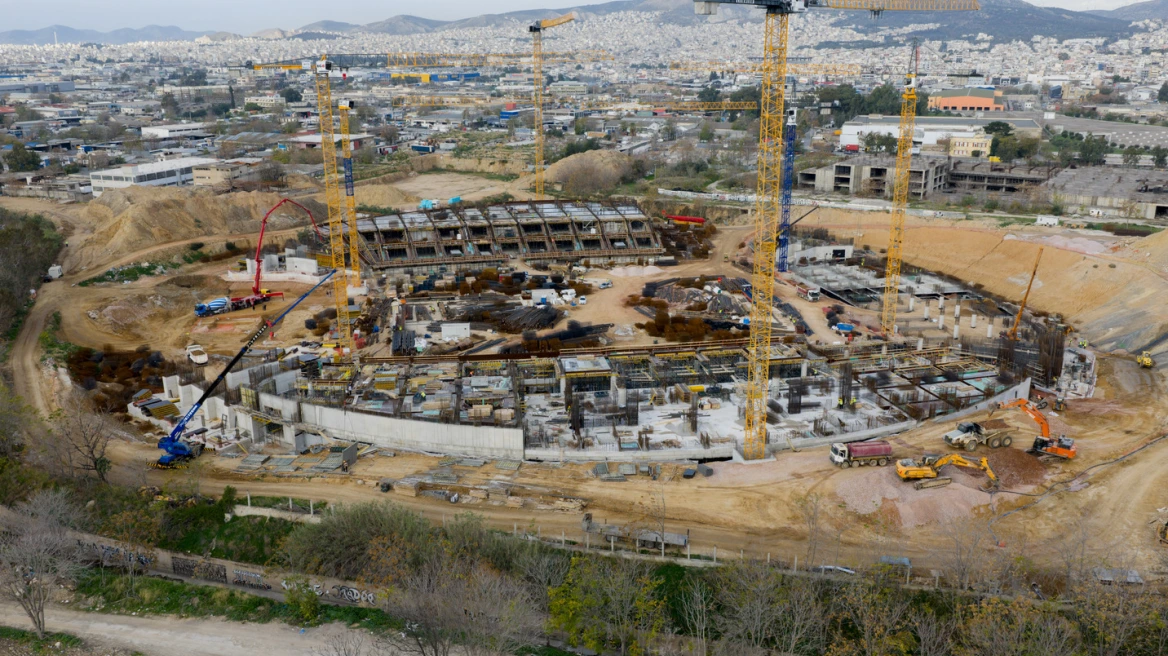Hezbollah announced early Sunday morning that it launched about 50 rockets from southern Lebanon at Israel in solidarity with the Palestinians in Gaza and in retaliation for recent Israeli attacks in the southern part of the country.
According to initial reports, the rockets were intercepted in the sky by Israel’s air defense system, the Iron Dome.
“The Islamic Resistance included the settlement of Beit Hillel (in northern Israel) in its list of targets and bombarded it for the first time with dozens of rockets,” the pro-Iranian movement’s statement said.
#Hezbollah announced on Saturday that it had fired multiple #Katyusha rockets into #Israel, marking the latest in a series of assaults it claims are in solidarity with the #Palestinian cause. #Lebanon #Hamas #ismailhaniye pic.twitter.com/QmDQawAZnu
— Channel 8 English (@Channel8English) August 3, 2024
“In support of our steadfast Palestinian people in the Gaza Strip and in support of their brave and honorable resistance, and in response to the Israeli enemy’s attacks on the steadfast villages of the south and on safe homes, especially the attacks targeting the villages of Kafr Kila and Deir Siryan which injured civilians, the Islamic Resistance included the new settlement Beit Hillel in its fire program and bombarded it for the first time with dozens of Katyusha rockets,” the Hezbollah statement said.
Hebrew media: Incredible interceptions as a result of #Hezbollah launching missile bags. pic.twitter.com/mTXyJSEZQO
— Mina (@Mina696645851) August 3, 2024
The U.S. Gathers Ships in the Middle East
The U.S. decision to send warships and a fighter squadron to the region marks perhaps the largest movement of American forces since the early days of the war in Gaza when the Pentagon sent two aircraft carrier strike groups to the Middle East, warning regional fighting groups not to expand the battles.
U.S. Secretary of Defense Lloyd Austin ordered the deployment of the aircraft carrier “USS Abraham Lincoln” and its escort ships to ensure that an American aircraft carrier remains in the region. Another aircraft carrier, the “USS Theodore Roosevelt,” was in the Gulf of Oman on Friday, accompanied by several other warships after recently leaving the Persian Gulf, a U.S. official said, speaking on condition of anonymity.
This shift leaves open the possibility of moving to Israel if they sail west around Yemen towards the Red Sea. Destroyers and cruisers, capable of ballistic missile defense and attack, will also be deployed in the area, writes the Washington Post. U.S. military forces have been placed on heightened alert following Iran’s threats of retaliation for the recent assassination of Hamas leader Ismail Haniyeh in Tehran, as the war in Gaza rages on.
“Leave Lebanon by Any Means”
It is recalled that Britain and the U.S. again called on their citizens to leave Lebanon amid growing fears of a war outbreak between Israel and the Lebanese Hezbollah organization.
The U.S. Embassy in Beirut urged American citizens to leave “by any available means.” Although many flights to and from the capital have been canceled or delayed, “options are available,” the embassy said in its statement. “We encourage those who wish to leave Lebanon to book any available ticket, even if the flight does not depart immediately or does not follow the preferred route,” it added.
In its own statement, the British Foreign Secretary also urged British citizens to leave “now” while “commercial flights are available.” “The tension has increased and the situation could deteriorate quickly (…) My message to British citizens is clear: leave now,” said David Lammy.
The Foreign Office asked Britons who remain in Lebanon to inform local consular authorities to be kept updated on the situation’s development. According to London, “military personnel” will soon be deployed “in the area” to support British embassies and assist British citizens. Royal Air Force helicopters will also be “on alert” to intervene if needed.
“Expanding the conflict is not in anyone’s interest; the consequences could be catastrophic,” David Lammy noted, reiterating his desire for de-escalation and a “diplomatic solution.”
The Government Warns Citizens to Avoid Travel to Israel
Canada’s government warned its citizens on Saturday to avoid travel to Israel, emphasizing the risks posed by hostilities in the broader region.
“The security situation can deteriorate further without warning,” the Canadian government said in a travel advisory for Israel.
“If the armed conflict escalates, it could affect your ability to leave by commercial means. It may cause disruptions in movement, such as the closure of airspace and cancellations or diversions of flights,” the travel advisory said.
The Largest Movement of American Forces in the Region Since the Early Days of the Gaza War
This is the largest concentration of warships in the Middle East since October 7, as fears of retaliation against Israel after the assassination of the Hamas political bureau chief, Ismail Haniyeh, heighten the atmosphere in the broader region.
After a phone call between U.S. President Joe Biden and Israeli Prime Minister Benjamin Netanyahu, in which the White House pledged to support Tel Aviv defensively against potential strikes by Hamas, Hezbollah, and the Houthis, the U.S. is now sending an aircraft carrier, warships, and a fighter squadron to the Middle East as the region prepares for Iranian retaliation.
According to CNN, “this is perhaps the largest movement of American forces in the region since the early days of the Gaza war when the Pentagon sent two aircraft carrier strike groups to the Middle East in a very public warning to regional fighting groups not to expand the battles,” as Iranians and their allies have already held the first meeting, with Ayatollah Ali Khamenei present, to plan retaliation against Israel.
In this context, “we heard the Supreme Leader loud and clear that he intends to retaliate for this assassination of a Hamas leader in Tehran and that they want to carry out another attack on Israel,” said John Kirby, strategic communications coordinator for the National Security Council, on CNN, adding that “we cannot simply assume that we may become victims of such attacks, so we must ensure we have the right resources and capabilities in the region.”
Iran’s Attack Expected Within Days
Meanwhile, according to U.S. officials’ assessment, the Iranian attack “could happen in the next few days,” which is why the U.S. is closely monitoring the region for any signs of how it might unfold. A milestone is the Jewish holy day, Tisha B’Av, starting on August 12 and ending on August 13, symbolizing the destruction of the First Temple of Solomon and the Second. According to U.S. command estimates, Iranian retaliation may exceed a barrage of ballistic missiles and drones similar to last April, proceeding to a larger and more complex attack in cooperation with their allies.
Already, Hezbollah leader Hassan Nasrallah hinted that a coordinated attack on Israel could be in the works after Israel assassinated one of his group’s top commanders, who is supported by Iran, in Beirut less than 24 hours before Ismail Haniyeh’s assassination. “Because they have chosen a fight with everyone, they don’t know where the answer will come from… the answer will come separately or coordinated,” Nasrallah said in his speech.
In the meantime, Israeli citizens are feverishly preparing for Iranian retaliation, as basic food items are being emptied from supermarket shelves. Additionally, the Jerusalem municipality distributed a folder with a list of parking spaces to be used as shelters and a list of bomb shelters, advising residents to reach the shelters within 90 seconds and to have enough water and food for three days, medicines, batteries, and flashlights.
Tehran’s Arrest Spree
The countdown to retaliation has also been marked by a spree of arrests by Iran, according to the New York Times, which has arrested more than 12 people, including senior intelligence officers, military officials, and workers at a military hostel in Tehran, in response to security breaches that made Haniyeh’s assassination possible.
High-level arrests were made after the assassination of the Hamas political bureau chief, who was visiting Tehran for the inauguration of Iran’s new President and staying in a hostel in northern Tehran. However, his stay in a heavily guarded complex in the country’s capital just hours after the inauguration ceremony of Iran’s new president did not protect his life, severely damaging the prestige of the Iranian armed forces.
Ask me anything
Explore related questions





